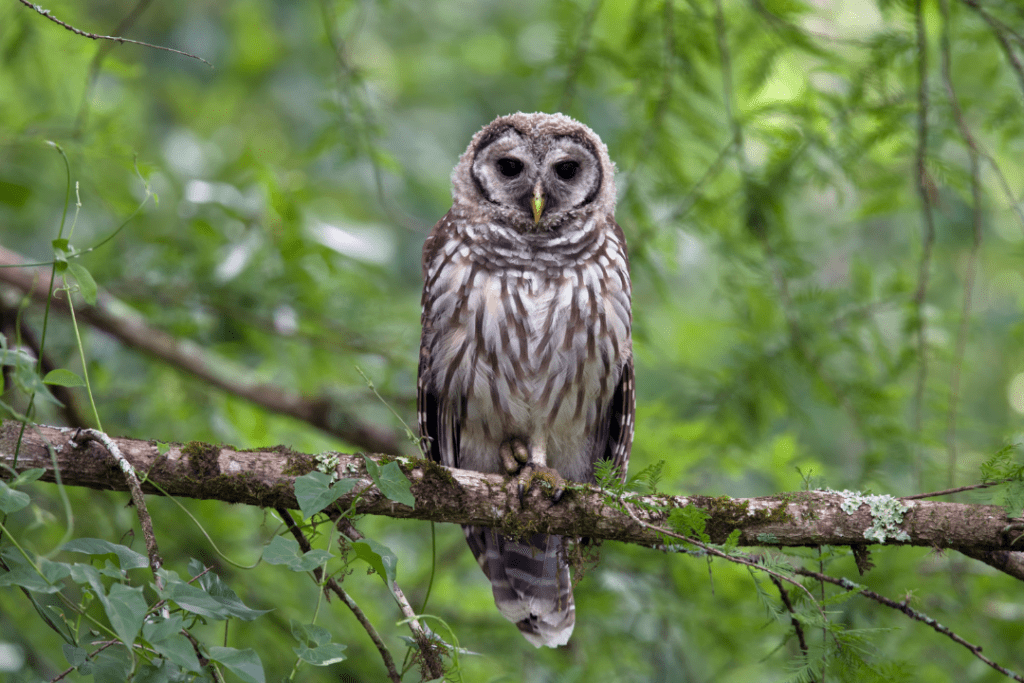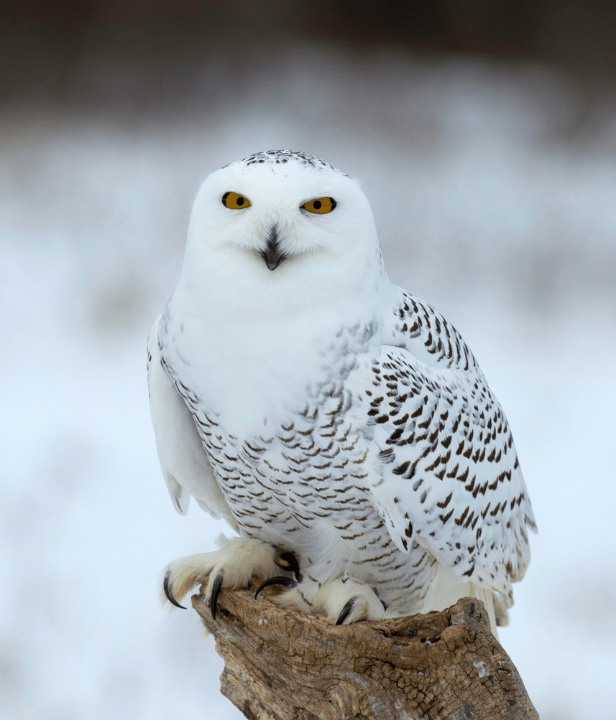Owls have been the subject of fascination and myth for centuries, inspiring both fear and reverence in cultures across the world. One of the most enduring beliefs about these birds is that they are bad omens, portending death, illness, or misfortune. But is there any truth to this superstition, or is it simply a myth perpetuated by old wives’ tales?

In this article, we’ll take a closer look at the history and symbolism of owls, as well as the scientific evidence and folklore that have shaped our perceptions of these fascinating birds.
Owl Symbolism in Different Cultures
The symbolism of owls has varied greatly over the centuries, depending on the culture and time period. In ancient Greece and Rome, for example, owls were associated with wisdom and prophecy, especially with Athena, the goddess of wisdom and strategic warfare, who was depicted with an owl. On the other hand, owls were also linked to death and the underworld, as they were thought to be the birds of Hades, the god of the underworld.
In Native American cultures, the symbolism of the owl was similarly complex and varied. Some tribes believed that hearing an owl’s call foretold death, while others saw the owl as a protector and guide. In Asia, Africa, and Europe, the symbolism of the owl was similarly diverse, with positive and negative associations. In some cultures, the owl was seen as a harbinger of bad news or an evil spirit, while in others it was revered as a symbol of wisdom and good fortune.
Scientific Evidence about Owls
Despite their intriguing symbolism, the biology and behavior of owls have been well documented by scientists. Owls are nocturnal birds of prey that are most active at night, when they hunt small mammals, birds, and insects. They are known for their distinctive hooting calls, which are used to locate mates and mark territory.
Owls are also known for their silent flight, which is achieved through the soft, downy feathers on the edges of their wings. This makes them very stealthy hunters, and they are able to surprise their prey with lightning-fast strikes.
Despite their reputation as fearsome predators, however, owls are not typically dangerous to humans. While they may attack if they feel threatened, these attacks are rare and usually result from the owl mistaking a person for its prey. Owls are also not known to transmit diseases to humans, and there is no scientific evidence to support the belief that they are bad omens.
Folklore and Superstition
Despite the lack of scientific evidence, however, the belief that owls are bad omens persists in many cultures and has been perpetuated by folklore and superstition for centuries. One common belief is that hearing an owl hoot three times in a row foretells death, while seeing an owl in the daytime is believed to bring bad luck.

These superstitions are thought to have originated from the owl’s association with death and the underworld in ancient cultures, as well as its nocturnal habits and eerie hooting calls. The belief that owls are bad omens has been perpetuated over the centuries by word of mouth, and has been passed down from generation to generation.
Why Owls are seen as Bad Luck
The belief that owls are bad omens is rooted in a combination of cultural and historical factors, including the owl’s association with death and the underworld, its nocturnal habits, and its eerie hooting calls. These factors have combined to create a superstition that has persisted for centuries, despite the lack of scientific evidence to support
it. In some cultures, the belief in the negative symbolism of owls has been reinforced by religious beliefs, as owls were often associated with evil spirits or demons.
However, it’s important to note that while the belief in the negative symbolism of owls is widespread, it is not universal. In many cultures, owls are still seen as symbols of wisdom, good fortune, and protection, and their presence is considered a positive sign. In fact, the positive symbolism of owls has been gaining traction in recent years, as more people become interested in nature and wildlife, and seek to dispel the myths and misconceptions about these fascinating birds.
Owls are nocturnal birds and are often associated with darkness and the unknown, which can make them seem ominous or frightening.
In many cultures, the hooting or screeching of an owl is believed to be an omen of death, which contributes to their negative reputation.
Owls are often depicted as witches’ familiars in folklore and mythology, which reinforces the association between owls and evil.
The piercing gaze of an owl and its silent flight can be unsettling, as they seem to be watching and following their prey.
In some cultures, owls are associated with negative spirits or demons, which furthers their association with bad luck and misfortune.
The belief in the negative symbolism of owls has been reinforced by religious beliefs in some cultures, as owls were often associated with evil spirits or demons.
Conclusion
In conclusion, the belief that owls are bad omens is a complex and multifaceted superstition that has been shaped by a combination of cultural, historical, and religious factors. While there is no scientific evidence to support the belief that owls are bad omens, it persists in many cultures due to the combined influence of folklore, superstition, and cultural beliefs. However, it’s important to recognize that this belief is not universal, and that many cultures still see owls as symbols of wisdom, good fortune, and protection. Whether you see the owl as a symbol of good or bad luck, there’s no denying that these fascinating birds continue to capture our imagination and inspire both fear and reverence.

James has always been an avid outdoorsman. Since a kid, he kept a journal of all the different birds and species he saw. Now he wants to share his passion with other birders with Happy Birding!
